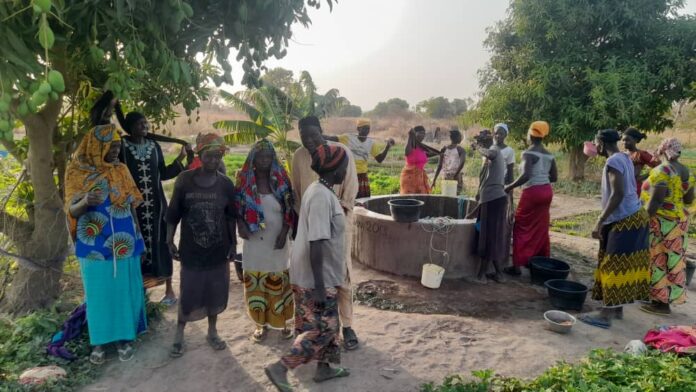By: Adama Sanneh
In Sami Koto (URR), women are the frontline workers in the daily activities of the village, from gardening to marketing in a neighboring community. They rely entirely on agriculture, especially their gardens, to feed their families. However, they face numerous challenges with limited opportunities.
Despite encountering social challenges, the notable issues in their gardens include a poorly maintained perimeter fence, insufficient water supply, and a lack of fertilizer. Fanta Jabbie, a gardener, expressed her frustrations: “We face many challenges in Sami Koto, including our garden. For two days, I have been trying to sell my harvest without success, and I don’t have a storage facility to keep it fresh. This is a significant loss for me as I end up having to discard it.”
She further explained, “We only have one market to sell our products, which is Garawol, our neighboring village. Our men are mostly unemployed, and this garden is our main source of livelihood. However, we lack fertilizer, and the government pays little attention to our plight. We need assistance!” she emphasized.
Fanta highlighted that the income from selling their produce is crucial for supporting their families. The garden has only one well, causing delays as multiple people have to wait to water their beds. If the well dries up, they must wait until the next day, impacting the garden’s growth.
Mama Jawla, Wuday Kebba Fatty, Fanta Banora, and Bakary Fatty, all gardeners, echoed similar challenges. They lamented the poor condition of the perimeter fence, which allows animals to intrude and destroy their plants. Consequently, they are forced to stay in the garden late to prevent such intrusions.
Moreover, they emphasized the lack of storage facilities for their products. The women of Sami Koto wake up at 5 o’clock every morning to catch the first vehicle to Garawol or walk several kilometers to sell their products.
Since farming is their sole source of livelihood, these women urge the government to provide electricity to explore other means of survival and better care for their children.




